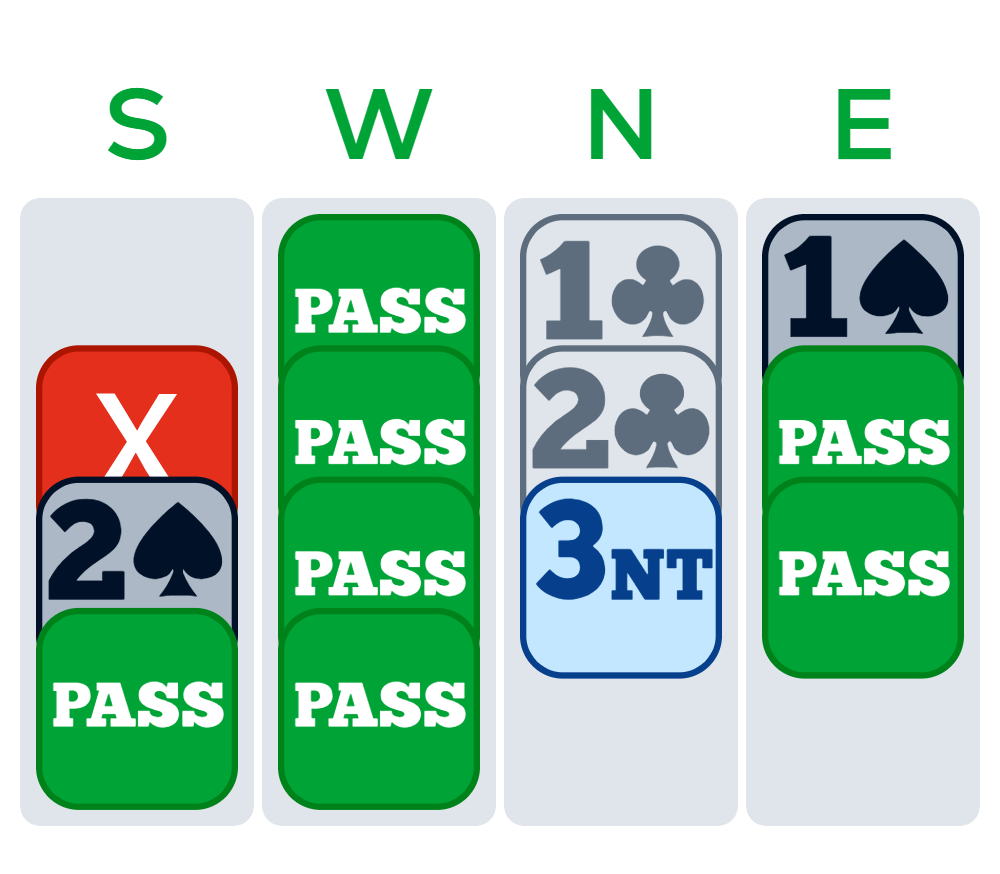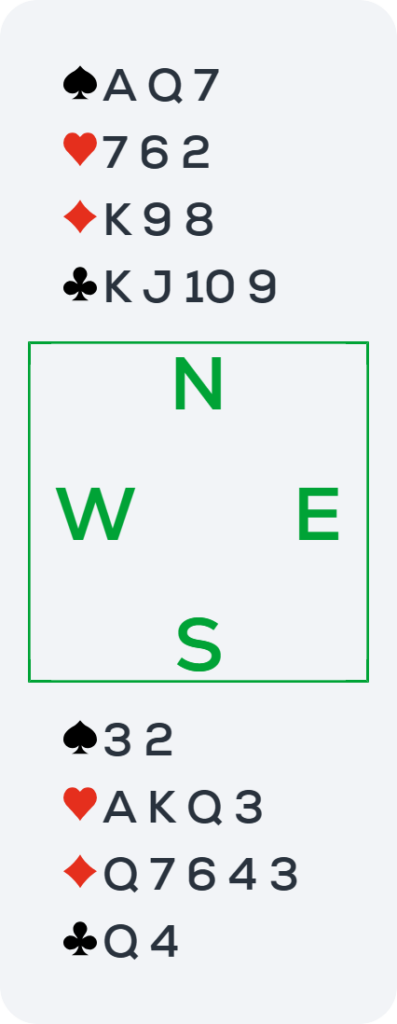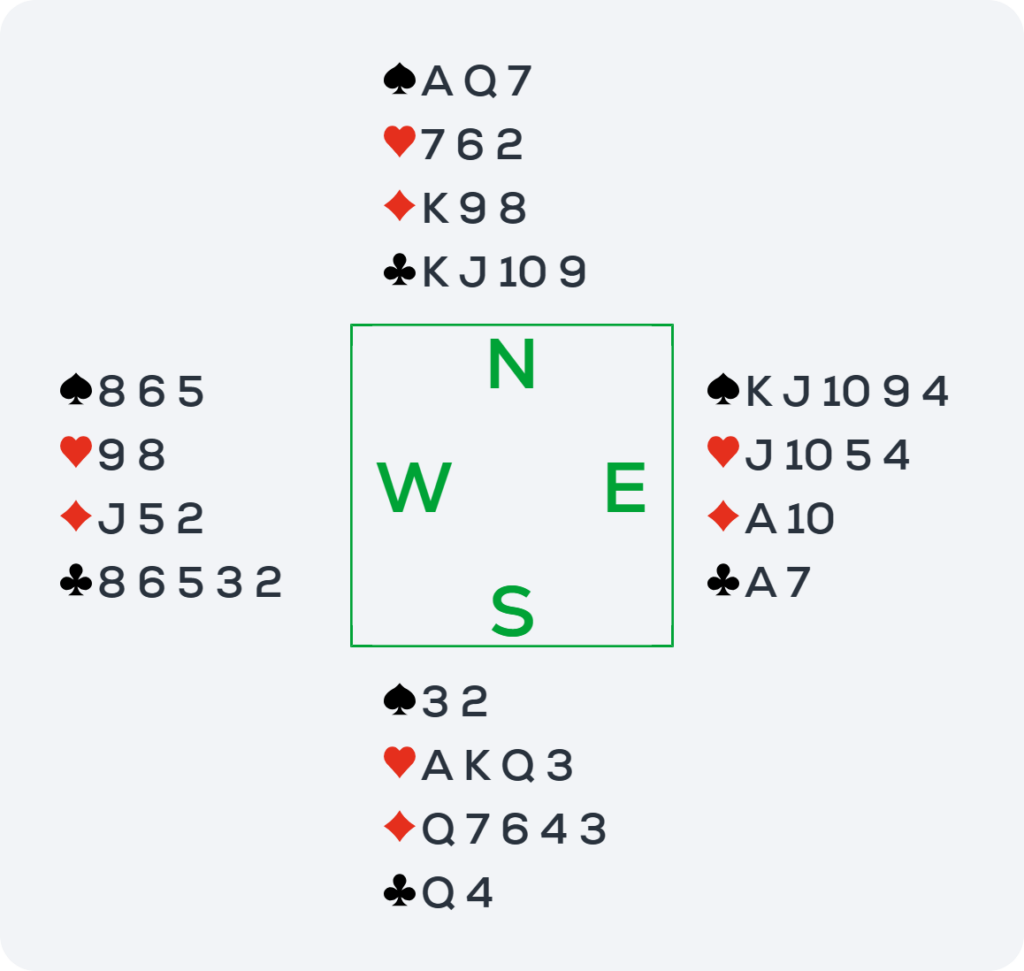
Stay vigilant and adapt your behaviour!

Who said that only grand champions could write bridge articles? Funbridge has launched a new format of articles that allow talented players to share their expertise on the deals that inspire them the most. We have the pleasure of presenting you with a captivating article below that was written by one of the members of our community.
Zoom in on the author
Jean Galand (sqzy on Funbridge) is an energy engineer and freelance coach at Blanche Conseil et Développement. As a teenager, he started with bridge by trying to solve the problems in Le Figaro [a French newspaper] by the late José Le Dentu, which were given to him by his grandfather. But it was his uncle, a bridge instructor in Sedan, who taught him the bidding and the difference between playing low from both hands and ducking a high card! Jean Galand has been playing in Paris for 30 years, with two or three competitions per year, and is ranked as a Series 1 Diamond in the French ranking system. His worst bridge memory: way behind in the final of the National Junior Teams in La Palmyre in 1995, his team got two byes…
More recently, having made the observation that the average age of bridge players would not be able to increase by one year every year forever, he decided to commit to passing on the spirit of the game. He is a member of the Finance Commission of the Parisian Bridge Committee, in order to support the Bureau and the Regional Council in the preparation and control of the budgets, in the short- and medium-term. He has been a bridge teacher since 2023. His belief? No matter your ranking, coaching methods enable you to significantly improve your level, as they will help put you in the right frame of mind and increase your vigilance.
Stay vigilant and adapt your behaviour!
Sitting South, after my partner had opened 1♣ and a 1♠ overcall on my right, I had the following hand.

With 13 HCP, 2♠, 4♥, 5♦ and 2♣, I had to bid something. But my 5♦ were so flimsy that I decided not to bid them and to downgrade by doubling to show 4 hearts. On his 2♣ rebid, I cue-bid to ask for a spade stop and Argine, as North, bid game with 3NT.

As expected, East led a spade, the Jack. I analysed the lead: the spades would probably be 5332 and East had overcalled 1♠ with KJXxx and at least one of the two missing minor-suit aces.
I made my plan for the play. I had 5 winners: 2 spades and 3 hearts. I could establish 3♣ by pushing out the A♣ and hoping for Hearts 3-3. If they were 4-2 or East had both minor-suit aces, it seemed as though I would be down… at first analysis.
So, I wanted to cut the opponents’ communications in Spades by ducking a spade. But not on the lead, as I had to protect my Queen of Spades.

I therefore won the Jack of Spades with the Queen of Spades. I played back the 9♣ to the Q♣ and a ♣ but East rose with the A♣. East played another ♠, which I ducked, and a spade that I took with the Ace, discarding a diamond from the dummy. West followed to three rounds of Spades. I cashed the A♥ and K♥; everyone followed. I looked at Argine’s count signals. 9 then 8 of Hearts from West and 5 then 4 of Hearts from East. The Hearts seemed to be 4-2… Oh no! I still cashed my clubs. East discarded a diamond and then a spade. Hey, that’s odd!
Let us construct the hands: East had 5♠ and 2♣ and discarded one diamond but not two.
How can we explain his ♠ discard? He must be stuck, having to keep the fourth heart and stiff A♦. Otherwise, would he not have thrown a second diamond?
I therefore played a diamond to the Queen and East went up with the Ace and cashed his spades. I discarded a heart and a diamond from the dummy. East exited with a heart and I claimed 3NT=.
Post-mortem, I learned that my initial analysis was incomplete… but my natural bridge-player reflex to cut the opponents’ communications saved my hide.
Indeed, if I had not ducked a spade, I would not have had a count of East’s hand and would not have known for certain that East had not discarded from KJXxxx (to six).
I also saw that my mental preparation had paid off: whereas my instinct would have been to continue to play for the Hearts 3-3, I took the time to analyse the situation with regard to this strange discard in order to make the most of combining intuition and analysis.
I also realised that, from the beginning of the game, a champion would surely have conceived of the extra chance of East finding himself in a pickle on the run of the clubs.
Technically, this play is called a triple squeeze. And it is easy to spot: when it happens, the squeezed opponent is “forced” to make a strange discard, to your great delight.

Note: you will have noticed that it would have been better for East only to win the second round of Clubs, in order to prevent Declarer from cashing two rounds of Hearts.
What is the concept behind community articles?
Would you also like to write an article? At Funbridge, we like to give our players a voice. In this format of articles, it is you who write the content. If you notice a deal that you find particularly interesting and that you would like to share with the Funbridge community, tell us in a comment below! We will get back to you quickly.

Content Manager
What did you think of this article?
Share your opinion in the Comments section below.





loved this article!
Wonderful! Nice analysis and explanation!
Nice article
OK